Junkyard Gem: 1985 Subaru XT 4WD Turbo

Subaru began selling cars in the United States in 1968, when Malcolm Bricklin brought over the 360 kei car. Slightly larger but still very cheap Leones followed, with Pleiades-badged four-wheel-drive cars developing a cult following here starting with the late 1970s. With increasing Subaru success during the 1980s, the time seemed right for a genuine sports car aimed at the United States market. This was the XT, known as the Alcyone in its homeland. Today’s Junkyard Gem is one of the first XTs built at the Yajima Plant in Gunma Prefecture, now residing in its final parking spot in a Colorado Springs self-service boneyard.
Coloradans have loved Subarus since those first four-wheel-drive Leones showed up during the 1970s, and so the car graveyards along the Front Range are fine spots to examine Subaru history up close. We just saw a discarded example of the sportiest member of the mid-1980s Leone family in this series, and following that up with an XT seemed appropriate.
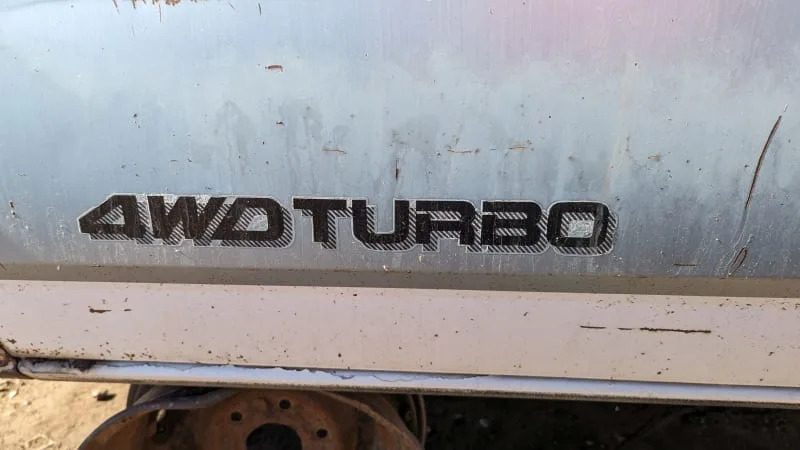
Electronic fuel injection made turbocharging reasonably civilized and reliable on real-world streets, which ushered in the Turbo Decade. Suddenly just about everyone was bolting turbochargers to car engines, and Subaru jumped aboard the Turbo Train in 1983.
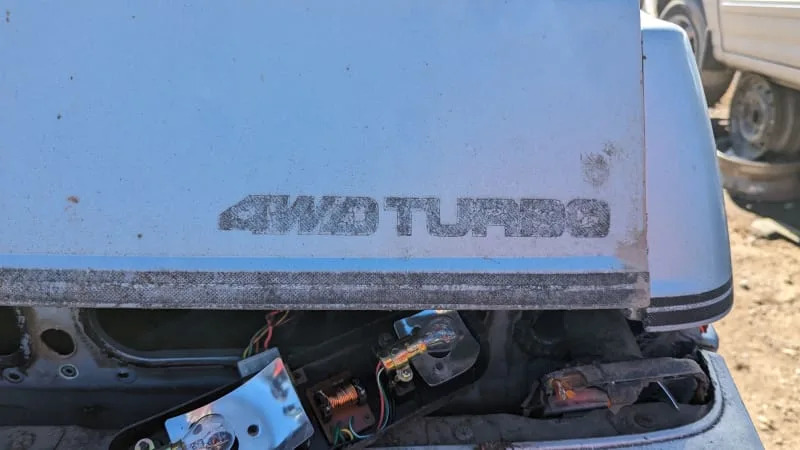
The engine in this car was rated at 111 horsepower and 134 pound-feet, which was decent but not overwhelming for a 2,610-pound car.
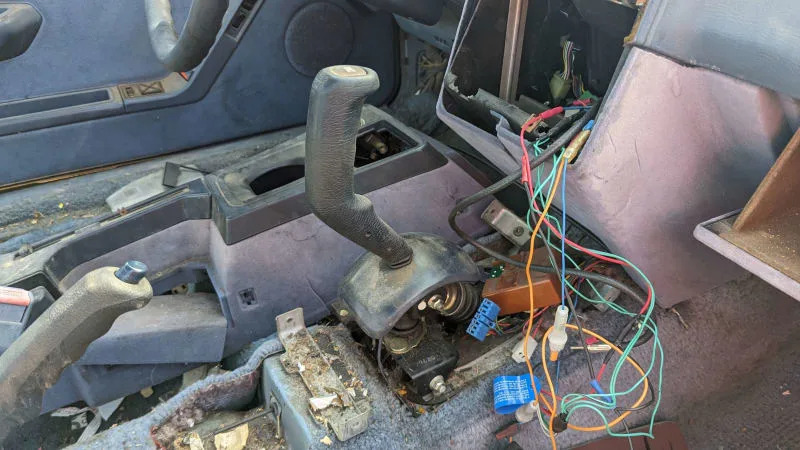
The four-wheel-drive system wasn’t what we’d call all-wheel-drive today; the driver had to push the button on the fighter-jet-style gearshift in order to switch between front- and four-wheel-drive modes. If you drove for too long on dry pavement in 4WD mode, eventually you’d tear up the tires and maybe break something a lot more expensive. Later in the 1980s, Subaru developed a no-decisions-needed AWD system called “Full Time 4WD” and it was available in the XT.
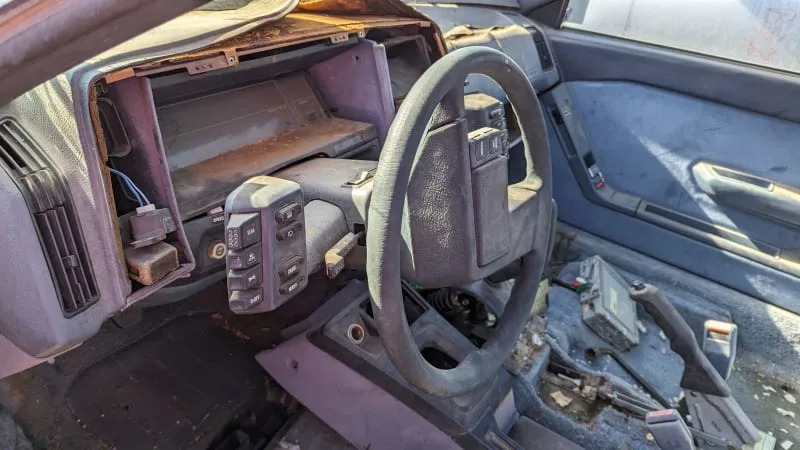
The entire instrument panel adjusted along with the steering column and its control pods, a feature that never caught on with other car companies.
I shot this video of the adjustable cluster in action with another junkyard XT.
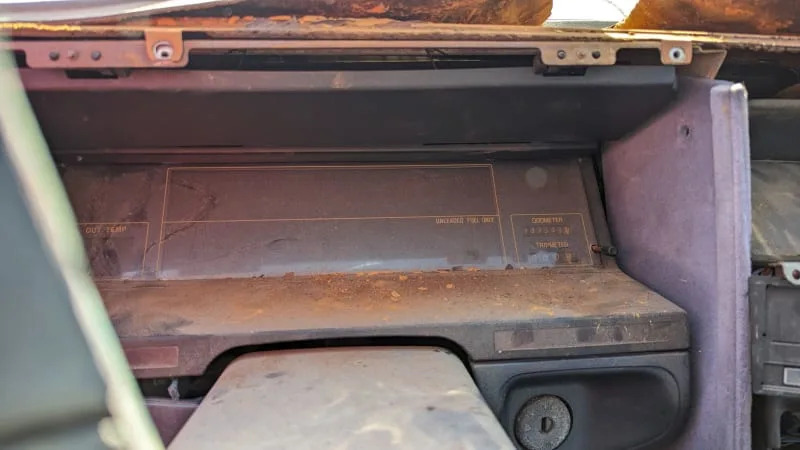
This car has the science-fiction-style digital gauge cluster, which looked like a video game in action. I’ve already got one in my collection of 1980s digital dashes, so I left this one in the junkyard. The odometer here reads 147,643 miles.
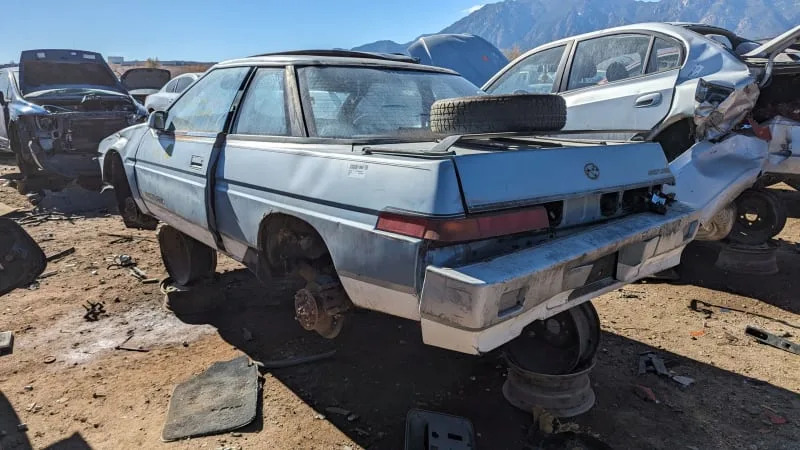
Because Subaru’s boxer engine layout lets it fit in a shallow engine compartment, Subaru was able to make this car very low and sleek.
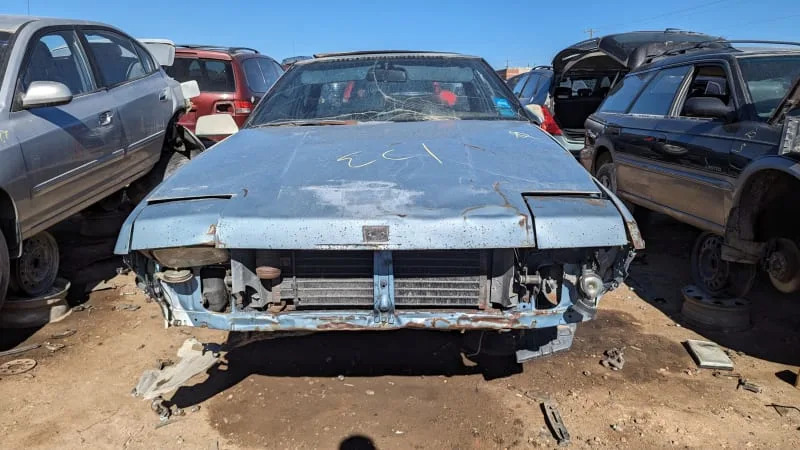
The price tag on this car had a number unheard-of in Subaru-land prior to 1985: $13,589, or about $36,630 in 2023 dollars.
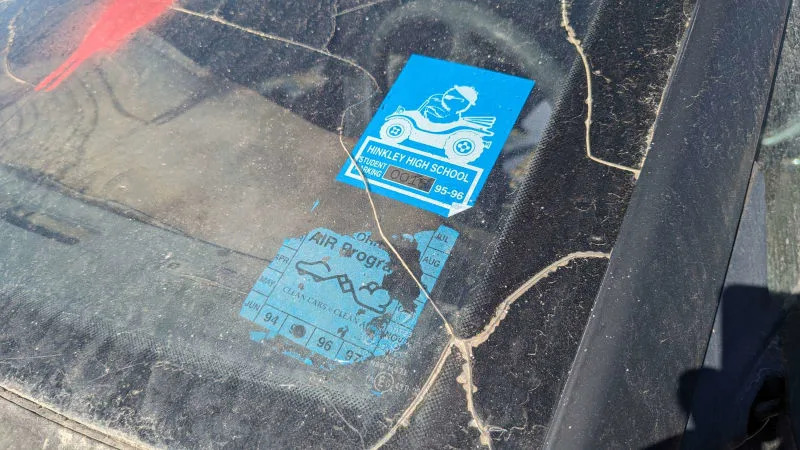
The six-cylinder XT6 followed in 1988. The XT’s successor was the even crazier SVX.
Why didn’t Subaru do Alycone TV commercials with more screaming tires and jet-engine-grade turbo whoosh?
“I thought we agreed you’d buy a Subaru!”







